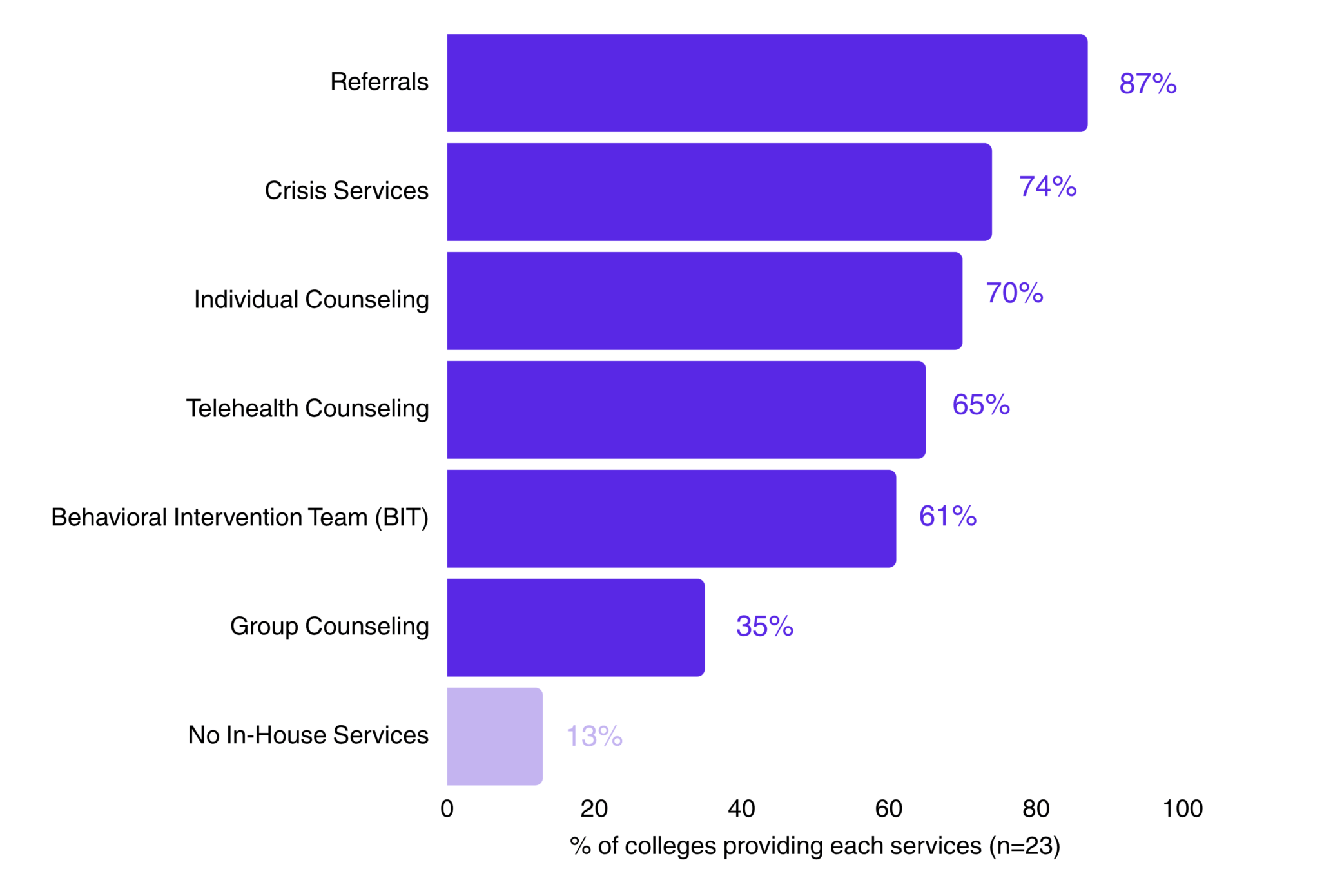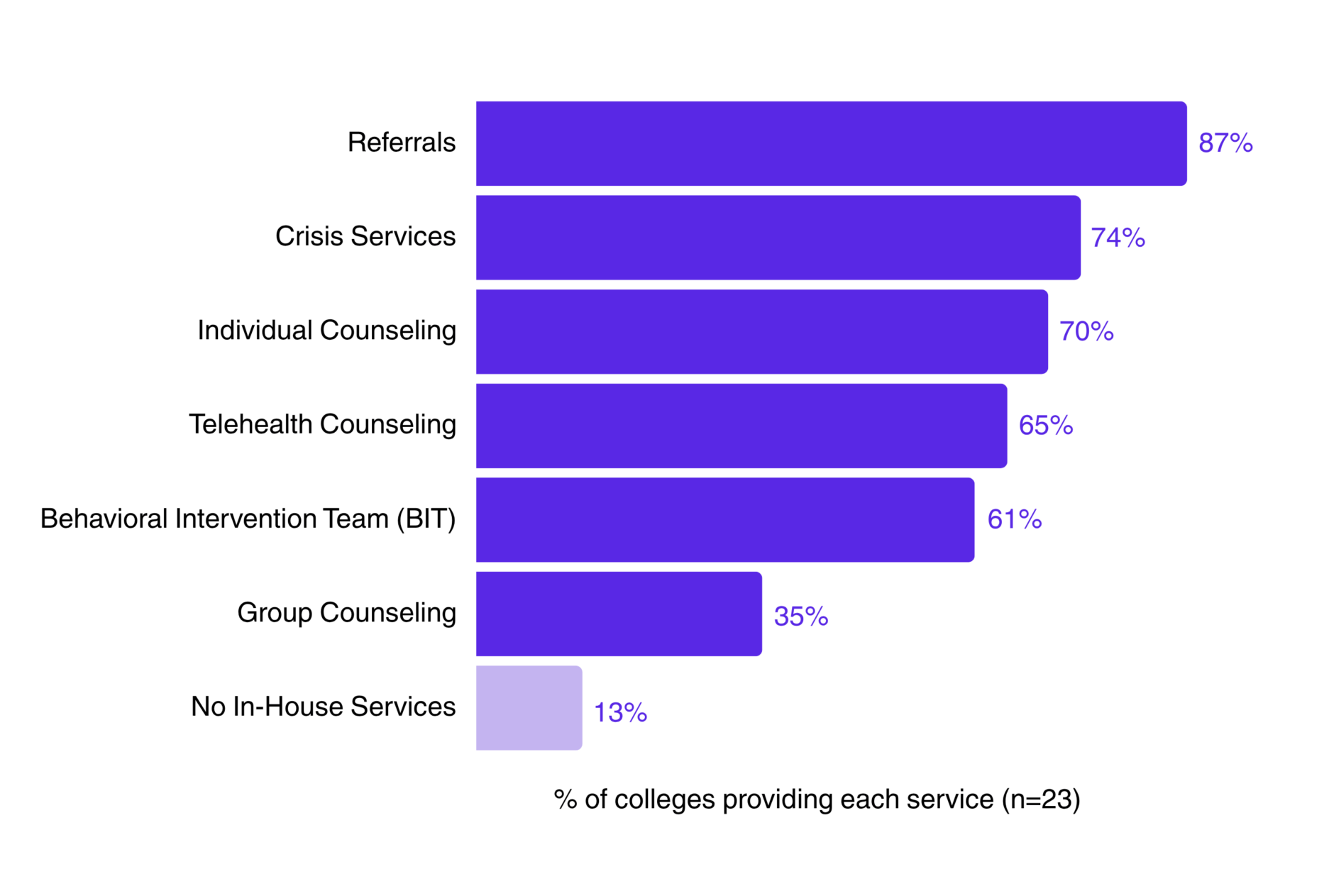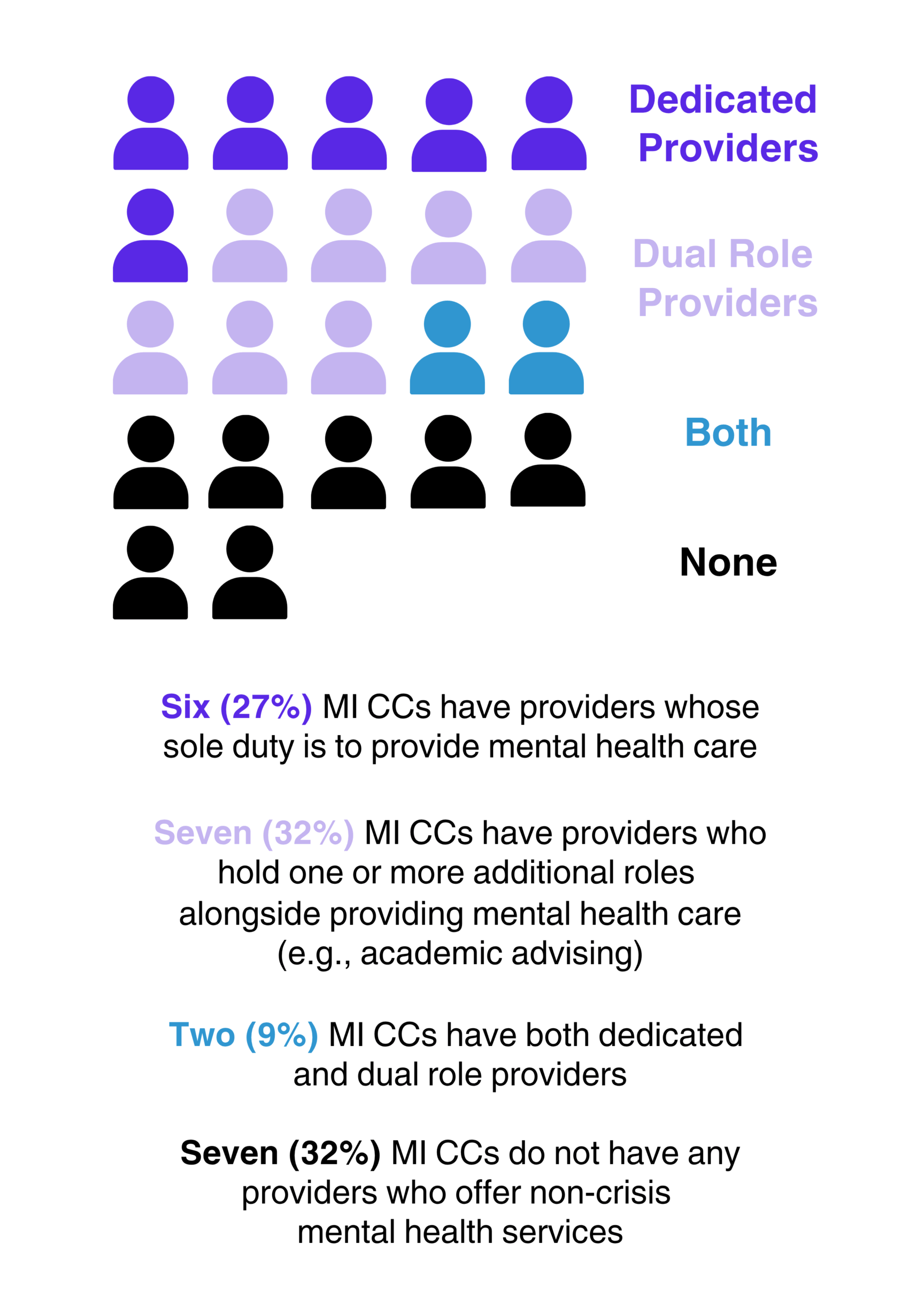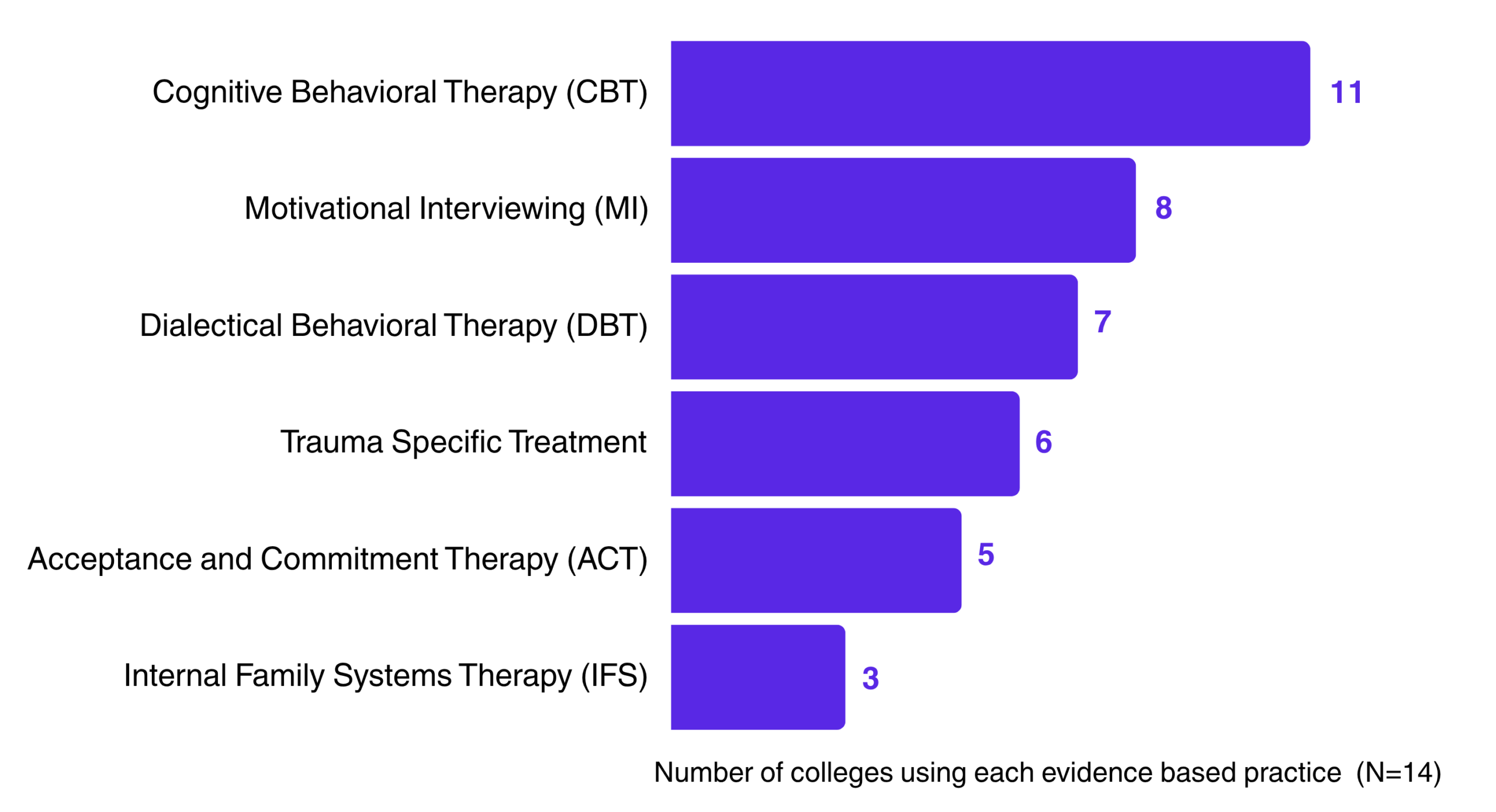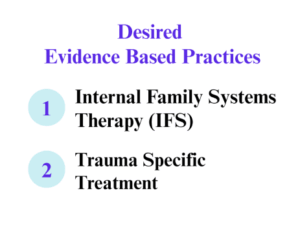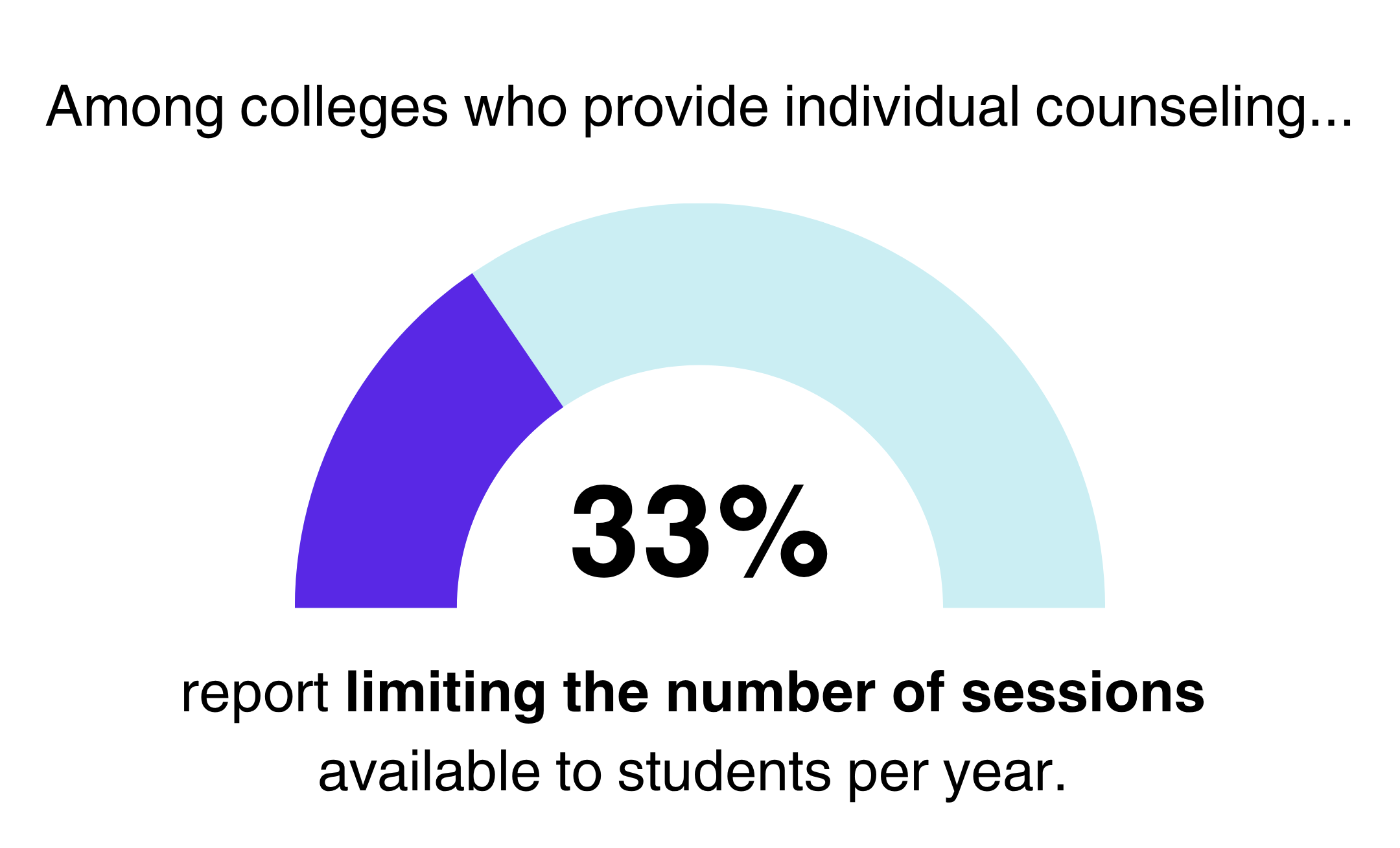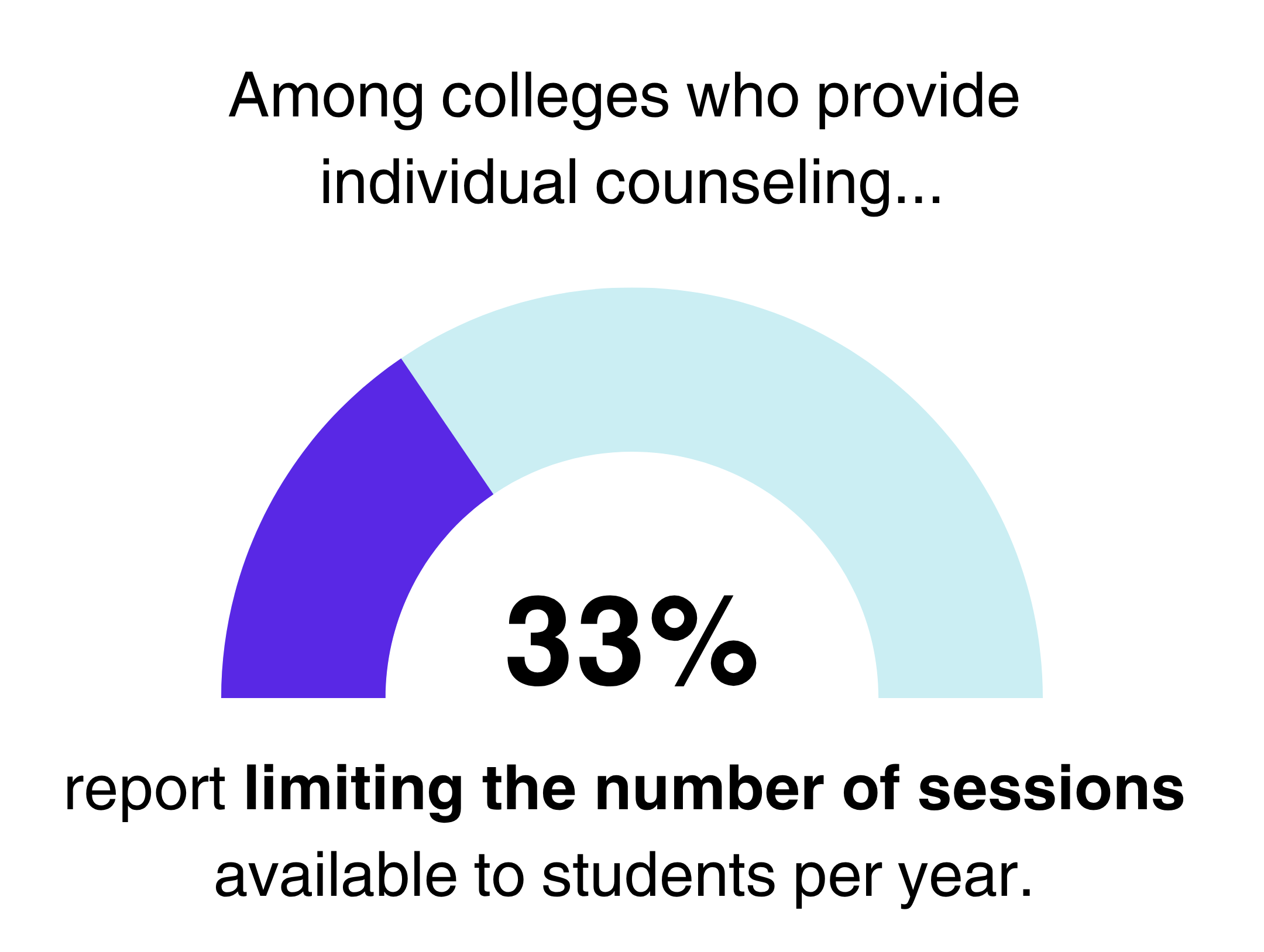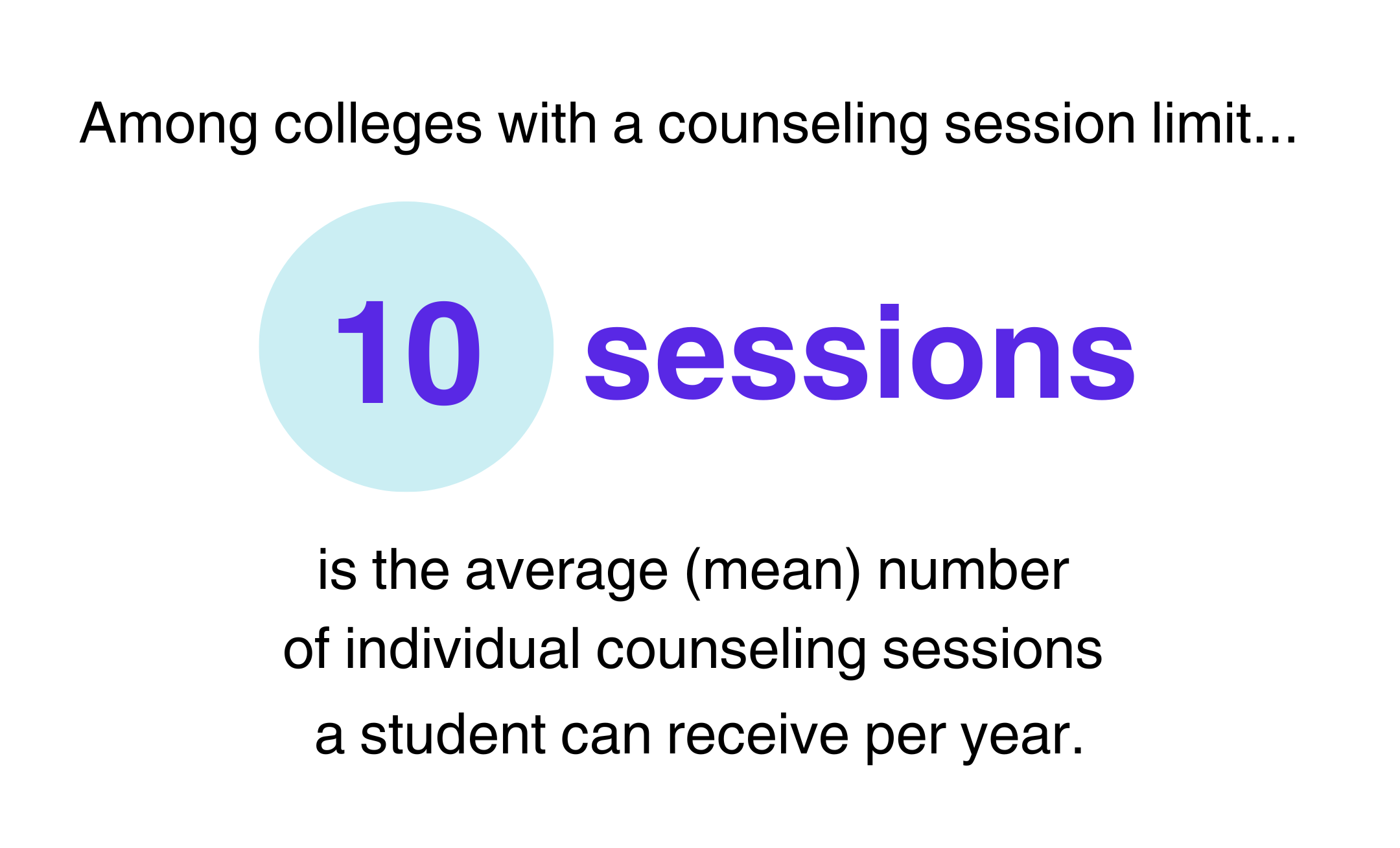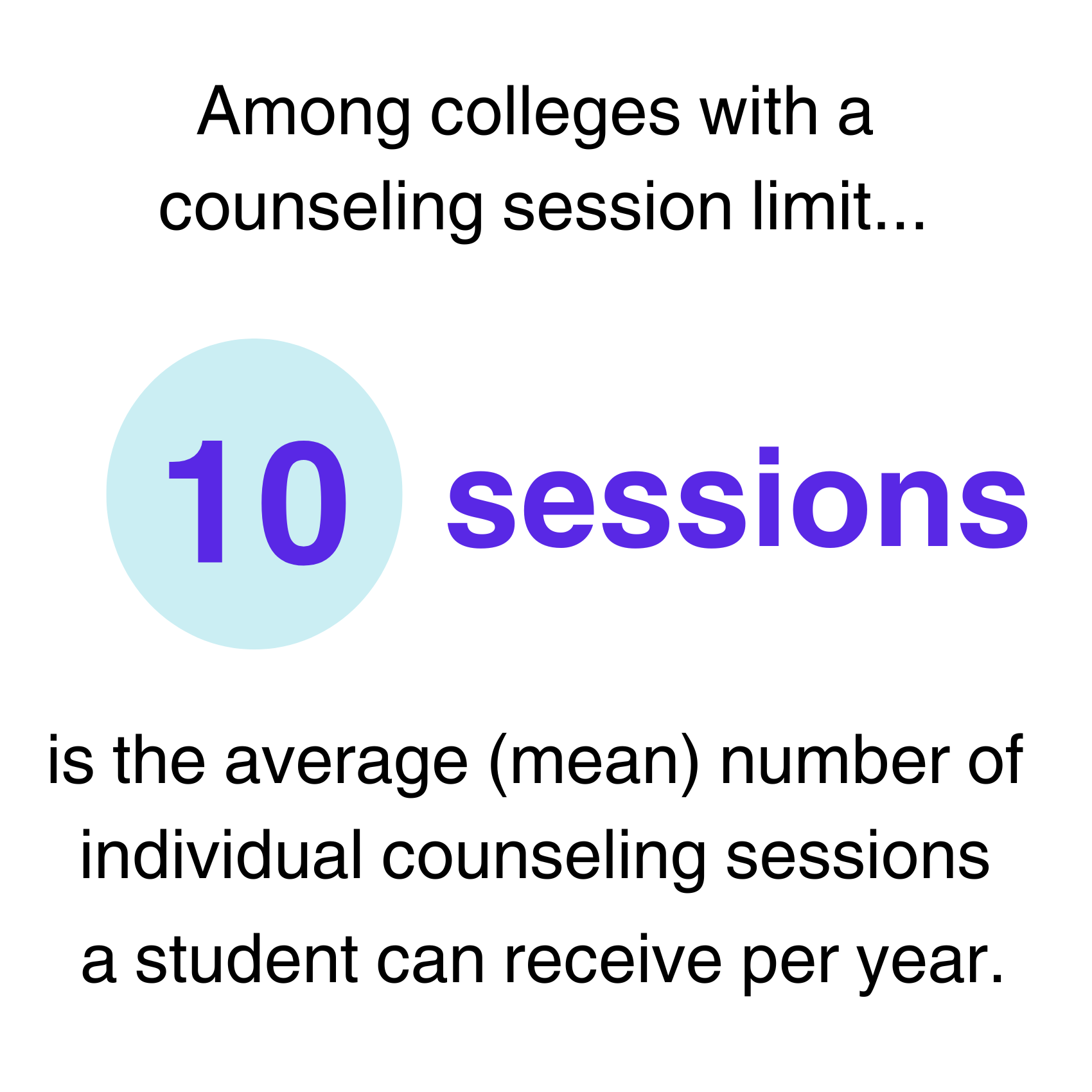Community College Mental Health Services
Community College Mental Health Services
Access to mental health services is unevenly distributed across Michigan community colleges.
Access to mental health support varies widely across Michigan community colleges. While some colleges offer a range of in-house services, others provide none at all. The chart below shows the percentage of colleges that provide each type of mental health service:
Access to mental health support varies widely across Michigan community colleges. While some colleges offer a range of in-house services, others provide none at all. The chart below shows the percentage of colleges that provide each type of mental health service:
There’s no single model for providing mental health care to students.
Among colleges that offer non-crisis mental health care, like individual counseling, the way that services are staffed can look very different. The chart below shows the various models used to support students:
Among colleges that offer non-crisis mental health care, like individual counseling, the way that services are staffed can look very different. The chart below shows the various models used to support students:
Students’ access to proven mental health care practices varies across colleges.
The type of mental health care students can access depends on their college, since not all colleges use the same evidence-based approaches. The chart below shows different research-supported approaches to care used by Michigan community colleges.
The type of mental health care students can access depends on their college, since not all colleges use the same evidence-based approaches. The chart below shows different research-supported approaches to care used by Michigan community colleges.
Session limits can shape how students experience mental health support.
At some colleges, students can only access a limited number of counseling sessions per year. Among those that set limits, the number of sessions allowed varies.
At some colleges, students can only access a limited number of counseling sessions per year. Among those that set limits, the number of sessions allowed varies.

